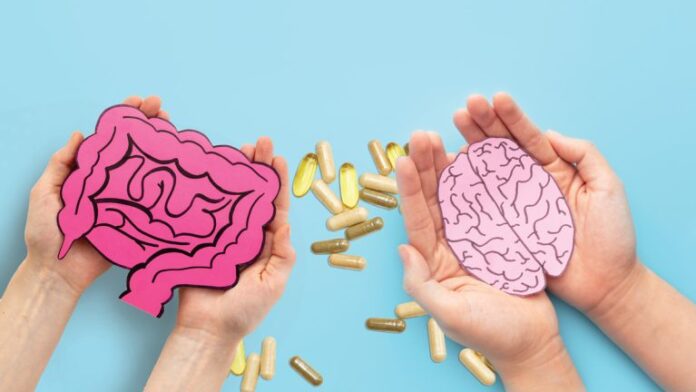Gut health has emerged as a vital component of overall well-being, influencing not only our physical health but also our mental clarity and cognitive function. The gut, often referred to as the “second brain,” is home to the enteric nervous system (ENS) and a complex community of trillions of microbes known as the gut microbiota. This intricate system plays a crucial role in communicating with the brain, impacting mood, cognition, and even decision-making. Let’s explore how gut health affects mental clarity and what you can do to maintain a healthy gut-brain connection.
1. Understanding the Gut-Brain Axis
The gut and brain are connected through a complex network of neurons, chemicals, and hormones that communicate bidirectionally. This communication network is known as the gut-brain axis (GBA). The vagus nerve, the longest cranial nerve in the body, plays a pivotal role in this axis by transmitting signals between the gut and the brain.
When the gut is healthy and balanced, the GBA functions smoothly, contributing to better mental clarity, focus, and mood regulation. Conversely, when the gut is imbalanced, it can lead to disruptions in these processes, affecting cognitive function and mental health.
2. Gut Microbiota and Neurotransmitter Production
The gut microbiota, the diverse community of microorganisms residing in our intestines, plays a significant role in brain health. These microbes are involved in the production of several neurotransmitters that regulate mood and cognitive function, such as:
- Serotonin: Approximately 90% of the body’s serotonin, a neurotransmitter that regulates mood, sleep, and appetite, is produced in the gut. An imbalance in gut bacteria can affect serotonin production, potentially leading to mood disorders such as depression and anxiety, which can impair mental clarity.
- GABA (Gamma-Aminobutyric Acid): GABA is another neurotransmitter produced by gut bacteria that helps calm the nervous system and reduce anxiety. Low levels of GABA have been associated with reduced focus and clarity.
3. Inflammation and Cognitive Function
Chronic inflammation in the gut can have a profound impact on the brain. An imbalanced gut microbiome can lead to increased intestinal permeability, often referred to as “leaky gut.” This condition allows toxins and partially digested food particles to enter the bloodstream, triggering systemic inflammation. When inflammation reaches the brain, it can affect cognitive functions such as memory, concentration, and decision-making.
Key Factors Leading to Gut Inflammation:
- Poor Diet: A diet high in processed foods, sugars, and unhealthy fats can disrupt the balance of gut bacteria and promote inflammation.
- Stress: Chronic stress can alter gut microbiota composition and increase gut permeability, leading to inflammation.
- Antibiotics: Overuse of antibiotics can kill beneficial bacteria in the gut, leading to an imbalance and inflammation.
4. The Role of Diet in Gut Health and Mental Clarity
Diet plays a crucial role in maintaining gut health and, consequently, mental clarity. Consuming a diverse range of fiber-rich foods, fermented foods, and prebiotics can promote a healthy gut microbiome.
Foods That Promote Gut Health:
- Fiber-Rich Foods: Vegetables, fruits, legumes, and whole grains feed beneficial gut bacteria, promoting a diverse and balanced microbiome. Dietary fibers, particularly prebiotic fibers, act as food for these bacteria, supporting their growth and activity.
- Fermented Foods: Foods such as yogurt, kefir, sauerkraut, kimchi, and kombucha are rich in probiotics, which can help replenish beneficial bacteria in the gut and maintain a healthy microbial balance.
- Omega-3 Fatty Acids: Found in fatty fish, flaxseeds, and walnuts, omega-3s have anti-inflammatory properties that can help reduce gut inflammation and support brain health.
5. Stress Management and Gut Health
Stress is a significant factor that affects both gut health and mental clarity. Chronic stress can alter gut microbiota composition, reduce beneficial bacteria, and increase intestinal permeability, leading to inflammation and impaired cognitive function.
Strategies to Manage Stress and Support Gut Health:
- Mindfulness and Meditation: Practices like mindfulness meditation and deep breathing exercises can help reduce stress levels, thereby protecting gut health.
- Regular Physical Activity: Exercise has been shown to positively impact the gut microbiome by increasing microbial diversity and promoting the growth of beneficial bacteria.
- Adequate Sleep: Quality sleep is essential for both gut health and cognitive function. Poor sleep can disrupt the gut microbiome and negatively affect mental clarity.
6. Probiotics and Mental Health
Probiotics, often referred to as “good bacteria,” have been shown to support gut health and potentially improve mental clarity. Research indicates that certain probiotic strains can help reduce symptoms of anxiety and depression by modulating the gut-brain axis and reducing inflammation.
Common Probiotic Strains for Mental Health:
- Lactobacillus: This strain has been linked to reduced symptoms of anxiety and depression.
- Bifidobacterium: This strain helps maintain the integrity of the gut lining, reducing inflammation and supporting cognitive function.
7. Hydration and Gut Health
Staying well-hydrated is crucial for maintaining a healthy digestive system. Water helps break down food, aids in nutrient absorption, and keeps the gut lining healthy. Dehydration can lead to constipation and negatively impact the balance of gut bacteria, which can, in turn, affect mental clarity.
Conclusion
The connection between gut health and mental clarity is a powerful reminder of the importance of a balanced, healthy lifestyle. By nurturing your gut through a healthy diet, stress management, regular exercise, and adequate sleep, you can enhance mental clarity, improve mood, and boost cognitive function. Paying attention to your gut health is not only crucial for your physical well-being but also for maintaining a sharp, focused, and healthy mind.

